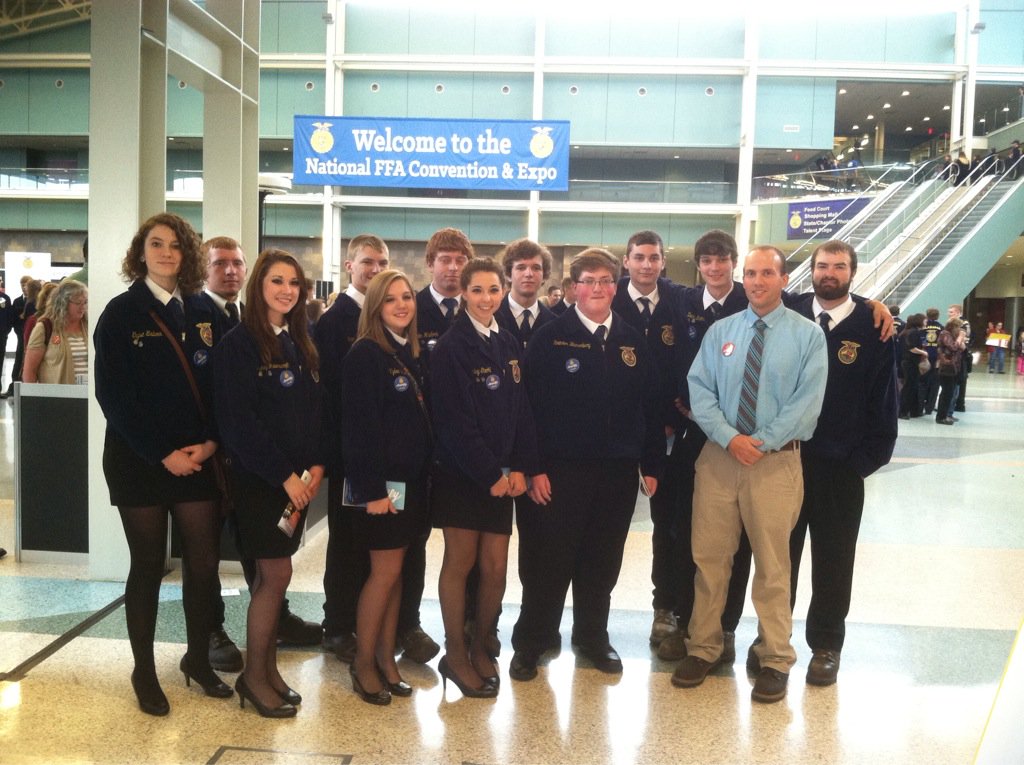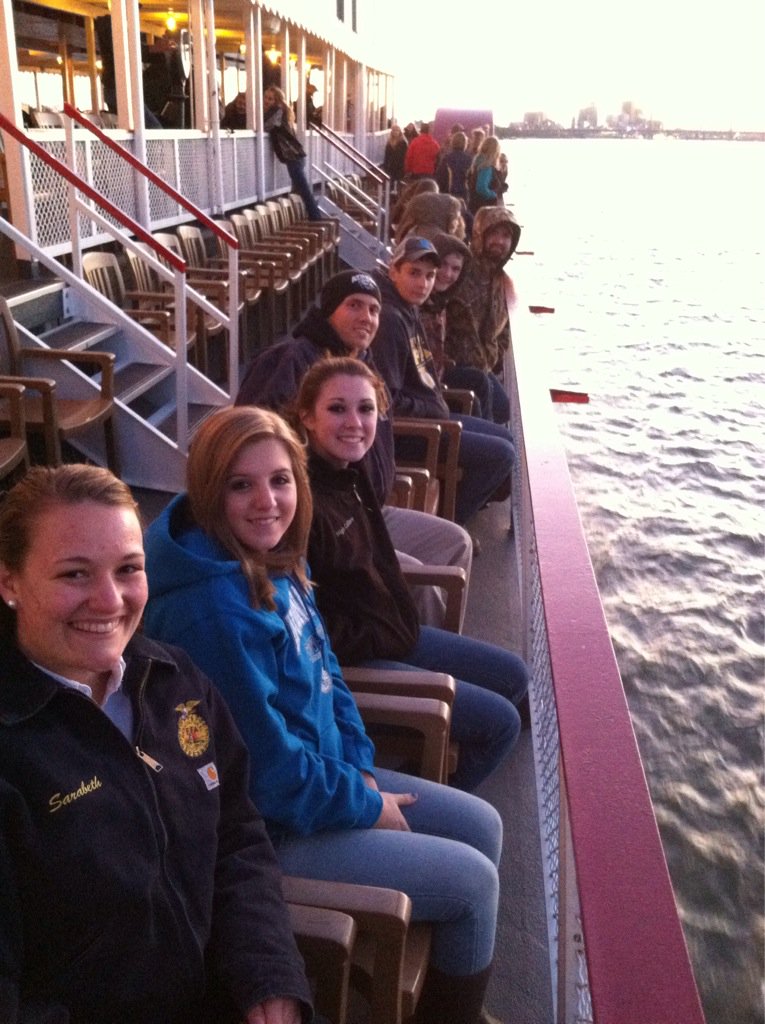You get your hands in it, plant your roots in it
Dusty head lights dance with your boots in it
Dirt, dirt, dirt...
"Dirt" By Florida Georgia Line
Micro Teaching at Williamsburg Area HS: Environmental Science
I had the opportunity to teach an Environmental Science class for three days in a row at Williamsburg Area HS under the guidance and direction of a very generous and understanding PA Ag Educator, Ms. Robyn Bechtel. This class, comprised of 13 boys and 1 girl in 10-12th grade was a handful, but I learned many valuable lessons and truly enjoyed teaching these high energy, high spirited students.
The learning objectives for the three days are outlined below:
Day 1:
1. List the three different soil particle sizes to 100% accuracy.
2. Compare and contrast particle size between sand, silt, and clay to teacher satisfaction.
3. Calculate the surface area of “sand, silt, and clay” post-its to 80% accuracy.
Day 2:
1. Utilize the soil triangle to determine soil type to teacher satisfaction.
2. Estimate soil type with supplies provided and the soil triangle, to teacher satisfaction.
3. Describe soil texture and its importance in soil classification to teacher satisfaction.
Day 3:
1. Review and recall soil vocabulary
2. Describe the proper way to collect a soil sample to 100% satisfaction
3. Describe the reasons for soil tests to teacher satisfaction.
4. Summarize how soils relate to our everyday lives, to teacher satisfaction.
Here are some of my initial thoughts I wrote down after each class
Day 1:
- It was good starting off with my expectations:
- Love the energy of the students, I need to harness this energy into learning
- Math CAN be (somewhat) fun!
- Didn't get through everything but that's fine!
Day 2:
- Definitely tough working with students who missed earlier classes. I need to develop strategies for my future classroom as to how students make up missed work. Additionally, I would like to gather some best practices from other teachers how the cope with students missing class.
- Need to be more conscientious of students LANGUAGE and CELL PHONES
Day 3: WOW! Went so fast.
- Students really do want to know that you care
- Names matter!
- YAY, students learned things about Soil (quiz went well)
- Students appreciate being valued and respected, were excited to take survey
- As the teacher, I can set the mood/ energy (TLAP type activity with quizzes in a really neat but mysterious folder!)
Biggest Takeaways from Micro Teaching
1) TIME MANAGEMENT
- WOW... 40 minutes goes by really fast! The first day my bellwork was like 8 minutes! Not ideal!
- Need to make sure that students are on task!
- Even though periods are short, don't be afraid to take the extra time to really ensure that students are understanding the content/ directions. This can alleviate more questions or confusion later
2) KEEP EM BUSY
- I had some very high energy, easily distracted, don't like sitting still kind of students. It was very beneficial to have them up and moving around a lot.
- I at first struggled with students who got done before others. On the second and third day I made sure to have items the students could work on if they were done with a worksheet etc. before others.
- It was my goal to keep the students so busy that they wouldn't realize 40 minutes had already passed! At least one student every day was like "woah... class is over?" Granted the first day, I was one of those people! (#TimeManagement) BUT busy students don't get into trouble.
3) VARIABILITY... Different is fun
- Many of the students expressed they liked a portion of the lesson or the lessons simply because it was different. Learning surface area in math=normal. Discussing how to determine surface area, and it's importance in relation to soil particle characteristics = not so normal and therefore more interesting.
- Students who are interested and engaged add so much more energy and curiosity to the class. This positive energy is infectious, and added a lot to my experience.
4) BE FLEXIBLE
- KEEP CALM AND PRETEND IT WAS ON THE LESSON PLAN!
- There was a lot of activities modified, worksheets shortened, math lessons expounded, and objectives shuffled. And that is OK! After day one I was so nervous because I didn't get through everything that I wanted to... but it's ok because we shuffled for day two and it all worked out.
- Also important to be flexible with technology, supplies, etc.
5) SHARING
- Ms. Bechtel was so generous with us all week. I think that she demonstrated to Mrs. Gouger, Ms. Sessamen and I the importance of sharing resources with others, and the kind of generous heart ag teachers have. From actual tangible resources to advice, Ms. Bechtel floored me with her willingness to share! Thanks so much for hosting us Robyn!
STUDENT AND TEACHER FEEDBACK
Feedback from Ms. Bechtel
- watch time management
- during power points, have guided notes and share additional stories so that students have enough time to write information down
- When demonstrating how to use something (like the soil triangle) Have it on the projector or blown up on a poster to share
- Keep up the high energy
Feedback from Mrs. Gauger and Ms. Sessamen
- good positive and high energy
- good starting out with expectations
- name tents useful for names, etc.
- great job building up anticipation for Soils Quiz... #TLAP
- good job keeping students on task
- good job engaging disinterested/sleepy student
- nice key words "When I say texture..." and having students repeat directions
- watch students language
- watch students phone usage
- watch clarity of instruction
- TIME MANAGEMENT... day one was right at the bell
- be careful with soil samples... might make a mess
- explanation for using soil triangle confusing
- power point was fast!
Feedback from Students
Gems:
- made learning fun
- class was interesting and very intriguing
- liked moving around in class
- made math interesting for once
Opps:
- too many papers
- not a fan of math
- wanted to actually play with dirt!
One student totally made my day for the question that asks: "What did you like least about the instruction for this lesson."... Student response "Your only here for 3 days... wish it was longer."! That was really neat to read!
Thanks for reading !
Best
-Sarabeth
















